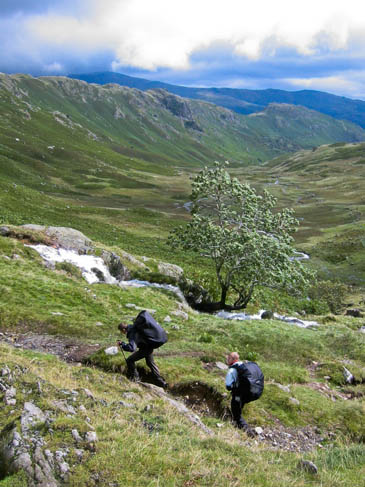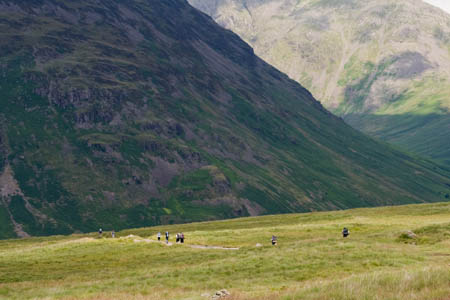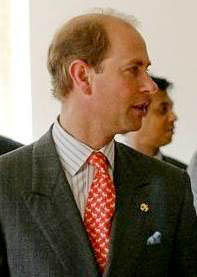Hands up if you’ve ever heard of the John Muir Award (put it down if you’re a member of the John Muir Trust – that’s cheating).
The award surfaced in a piece by climber and writer Ed Douglas in the Guardian newspaper’s Comment is Free section in which Douglas accuses some practitioners of the outdoor arts of ‘egotistical posturing’. Douglas was picking up the baton in the controversy surrounding Prince Edward’s statement to an Australian paper that the risk of death was one of the attractions of the Duke of Edinburgh’s Award.
The John Muir Award was held by Douglas to be an alternative to the long-established DofE Award, which is based largely on the philosophy of the eccentric educationalist Kurt Hahn, who set up Gordonstoun School in Scotland, where both Prince Philip and his son Charles, both of whom have been known to court controversy, were educated.
But the John Muir Award is, in essence and practice, a very different beast from the DofE Award. Whereas the DofE, at gold level, will take a minimum of a year to complete, the JMA’s top level, the Conserver Award, can be done in six months. But that’s not all: at the heart of the DofE is self-reliance, teamwork, challenge and – dare we say it – some element of risk, at least a perception of danger. While supervisors will never be that far from DofE teams, and will have done a risk assessment to mitigate the harm that might befall their young charges, there is always the possibility that participants will stray and get themselves into situations that increase the danger to them.
The JMA, as one would expect from a charity with wilderness conservation at its heart, has a very different emphasis. It too has four elements. Participants are expected to ‘discover a wild place’ though this could be as tame as a garden, school grounds or a beach. Rather than Kurt Hahn, the John Muir Trust, which runs the JMA, quotes author Aldous Huxley: ‘Wilderness is where one feels oneself to be in a wild place’.
The JMA candidate must then explore his or her wild place, do some form of conservation work in it, and share this experience with others.
The DofE expedition, which seems to evoke most of the controversy, is but one of four sections (with an extra residential experience for gold-level youngsters). They must also undertake volunteer work, take part in some form of physical activity and improve a skill during their time leading to the gaining of the award.
Douglas’s argument that ‘Marching off into the great outdoors is routinely trotted out as a cure-all for society’s ills, often by rightwing commentators,’ might surprise those with a long enough memory to recall the Manchester communist Benny Rothman and his followers who were jailed in the 1930s for daring to press their right to explore that particular bit of the great outdoors owned by the Duke of Devonshire.
The Ramblers, for all their new metrocentric chic and urban routes, still have at their core a bunch of old lefties with long memories who will fight tooth and nail for the right to walk the high ground of Britain and press for access to England’s coast – hardly the clarion call of the Right.
But is Douglas right when he says: “Outdoor activities can prompt the kind of egotistical posturing that uses the great outdoors as a backdrop on which to project an individual’s own self-importance”?
He continues: “In a me-first world, people want the kudos of being a risk-taker without bothering to understand the environment they’re functioning in.”
In almost 30 years of climbing and writing on the subject for 20 years, he says: “I’ve met too many practitioners on the borders of having personality disorders to get too misty-eyed about it.
“I can say that most people who do risky things well spend a lot of time and effort making them as safe as possible. No doubt those dedicated teachers who oversee the DofE scheme do the same.”
None of which diminishes the hurt felt by those whose loved ones are injured or die in the great outdoors. In today’s Observer, 66-year-old Ken Guyatt expressed his horror at the Earl of Wessex’s remarks to The Australian.
Ken, a Brummie who gained his gold DofE award in the early 60s said the prince’s somewhat incoherent endorsement of the scheme’s dangers caused all the misery and heartbreak to come flooding back.
Ken’s brother Ray was the 16-year-old who perished from hypothermia on a Welsh hillside in 1961 and whose death, according to Edward, caused an upsurge in interest in the award.
He told the Observer, sister paper to the Guardian: “I was horrified. I just don’t know why the prince has said what he has. It is such a stupid thing to say. It was so insensitive to those who knew and remember Ray.
“I think the prince is so detached from the people, he doesn’t realise how his comments can be hurtful.”
At this point, I should make it clear that I have a close interest in this matter. I am one of that army of unpaid volunteers who spend days of their spare time fretting on wind- and rainswept fellsides for teams of youngsters to appear and prove they can make the right navigational decisions. We cajole, encourage and try to lift the spirits of tired, wet, cold teenagers and young adults, many of whom come from deprived urban backgrounds and don’t fit Douglas’s model of a middle-class student burnishing their resumé.
Egotistical posturing? I don’t recognise it and I hope our DofE participants never do. Two deaths in more than 50 years is two too many, but less than many sports and activities that would be perceived as less hazardous. When planning DofE ventures, those in charge would do well to remember the old adage: just preface every explanation with ‘Your honour,’ and that should concentrate the mind.
As for the John Muir Award: an excellent idea that puts conservation at the centre of young people’s experience of the outdoors. A CV with both the JMA and the DofE on it would be so burnished as to dazzle.



The Piglit
01 November 2009Douglas is hardly one to comment on others' egotism.
Mick Guy
03 November 2009I think that the Prince's comments have as usual been hysterically received by the Press. Those of us who go into the outdoors accept there is a risk - it is the taking of a risk which motivates climbers / sailors / skiers. Many who are at the top of an outdoor sport tend to have an egotistical outlook, because they are by nature risktakers.
Nobody says that people have to die to make the outdoor experience worthwhile - indeed any death in the outdoors is as much a tragedy as any other death - but I think it is sometimes assumed that risk is bad and ought to be eliminated, especially where young people are concerned.
The whole emphasis of outdoor education as put forward by Hahn is that proper training and outdoor experience enables youngsters to make judgements about risk.
Society ought, perhaps, to be more concerned that risk is being eliminated, as it then fails to teach the young about the management of risk, and presents them with the alternative of moving into less healthy ways of risk taking.
Richard Bolam
03 November 2009All risk is to be eliminated if at all possible according to H &S considerations. Or at least reduced to manageable proportions. Although in a number of fields if there is risk which cannot be eliminated then the activity should not go ahead.